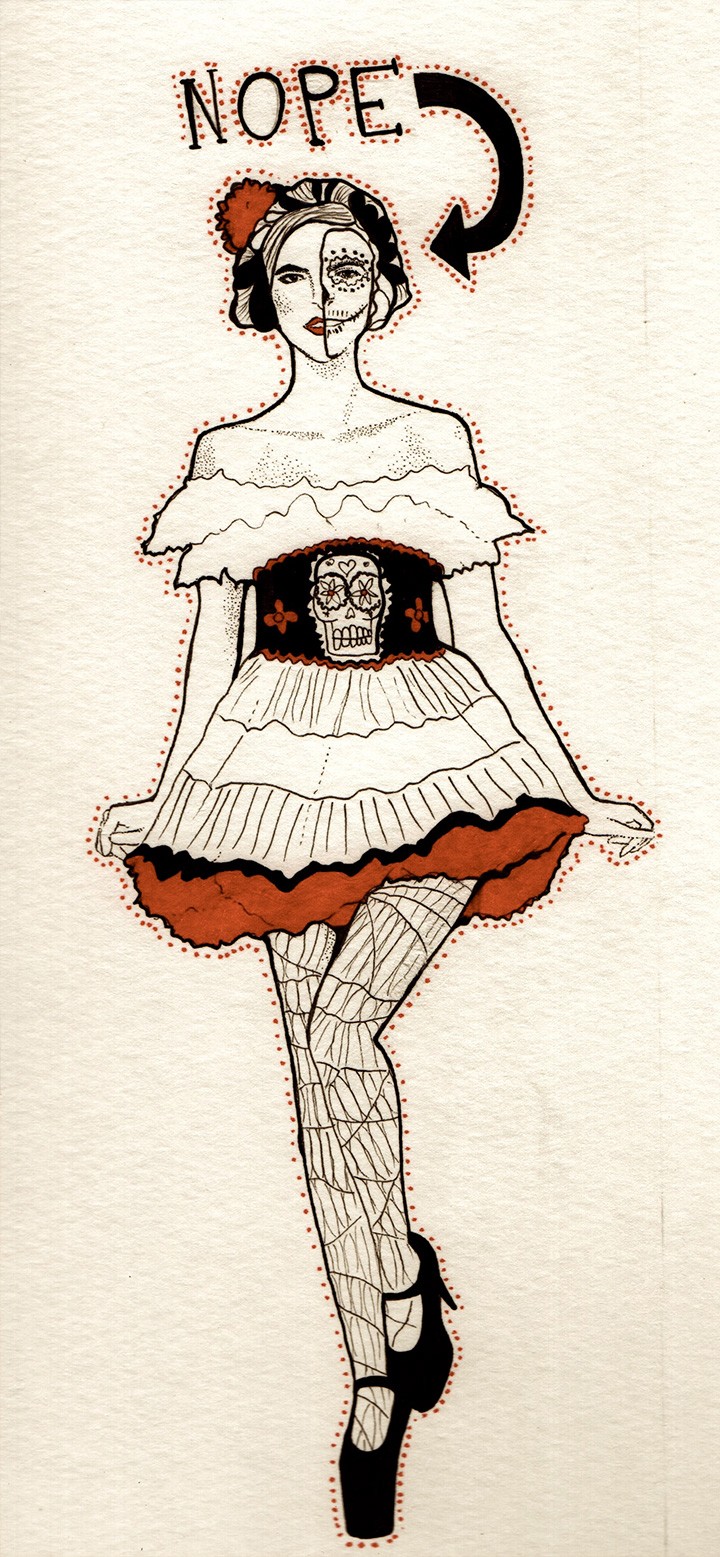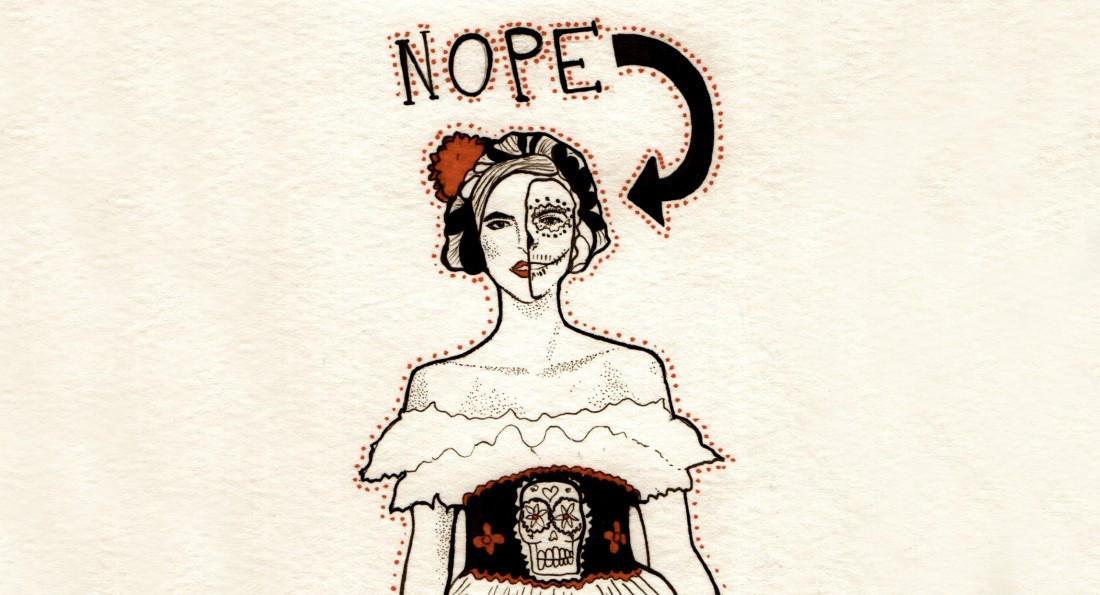Cultures are not costumes
Halloween is not an excuse

All the ghouls, ghosts and monsters are coming out as Halloween approaches, but these scary things are nothing compared to the fright of cultural appropriation.
If you don’t already know the term, cultural appropriation is the act of taking a culture that is not yours and displaying it in a negative or stereotypical way. Cultural appropriation in North America dates back to at least 1830, when white people would dress up with black makeup to make fun of black men, depicting them as lazy, dumb or uneducated. Fast forward to the 21st century, and we are still wearing similarly horrible and stereotypical costumes.
In the celebrity world, we see musicians appropriate year-round. At the American Music Awards in 2014, Katy Perry dressed up as a geisha, and her kimono wasn’t even Japanese, which understandably upset the Japanese-American community. In a TheRoot.com article, Yesha Callahan called Perry the “queen of cultural appropriation,” because she continues to wear cheap imitations of other cultures without apologizing.
Perry’s actions send the message that if a celebrity or musician who is constantly judged by the public can mimic another person’s culture and not get in trouble for it, then everyday people should be able to do the same thing. This is not okay! Every year the Halloween industry produces offensive costumes without acknowledging that they can hurt many people in different ways.
For example, if someone dresses up like a man from the Middle East and straps a fake bomb to his chest, they are furthering a stereotype that people from the Middle East are terrorists. This stereotype has far-reaching consequences on countless people, and it should not be reinforced for the sake of a fun night out with friends.
Similarly, when someone wears a headdress as a costume on Halloween, it disrespects not only Indigenous cultures generally but also those individuals who wear a headdress for traditional purposes. Within Indigenous cultures, this is a garment worn by people who have earned respect within their communities, so wearing one for fun suggests that Indigenous cultures can be written off and not taken seriously.
It’s not hard to find these sorts of costumes. Spirit Halloween in Winnipeg has already received backlash this year for selling racist costumes that sexualize Indigenous women. Sadie-Phoenix Lavoie of the University of Winnipeg Students’ Association told CBC, “I’m always hurt by it. I always feel a sense of frustration. It’s frustrating, because we always have to educate and explain why it’s hurtful.”
Indigenous-themed costumes are still available on the store’s website.
So this Halloween, if you see a friend, colleague or even family member dress up as a Jamaican Rastafarian, an African-American rapper with blackface, a Japanese geisha, a sexy “senorita,” an Indian woman or a gypsy, tell them to educate themselves and think twice about the impact of their costumes.
Mahlet Cuff is a first-year creative communications student at the University of Winnipeg.
Published in Volume 71, Number 7 of The Uniter (October 20, 2016)







